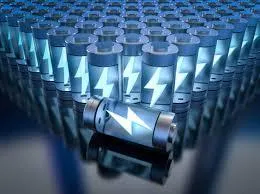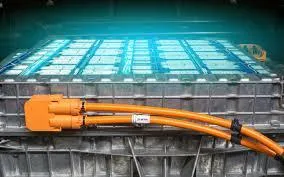Lifep04 Battery Information
Understanding Lifep04: Benefits and Applications

In today's fast-paced world, having a reliable power source is essential for both daily living and industrial applications. Whether you're powering a small device or a large system, the Lifep04 battery technology offers a multitude of benefits that cater to diverse needs. From its impressive longevity to its robust safety features, Lifep04 has become a go-to choice for many industries seeking dependable energy solutions. In this article, we'll delve into the benefits and applications of Lifep04 technology, helping you understand why it's rapidly gaining popularity across different sectors.
What is Lifep04?
Lifep04, also known as Lithium Iron Phosphate, is a type of lithium-ion battery that has garnered attention for its superior stability and safety compared to traditional lithium-ion batteries. This distinctive battery technology is characterized by its use of lithium iron phosphate as the cathode material, providing several advantages over other lithium-based batteries. As technological advancements continue to push the boundaries of energy storage solutions, Lifep04 stands out as a leader, offering a unique combination of performance and security.
The Composition of Lifep04 Batteries
Lifep04 batteries consist of a positive electrode made from lithium iron phosphate, a negative electrode composed of carbon, and an electrolyte that facilitates the flow of ions between these electrodes. This specific composition grants them robustness and a longer cycle life compared to other lithium-ion batteries. Unlike traditional batteries, the use of iron phosphate in the cathode significantly reduces the risk of overheating and combustion, providing an extra layer of safety. Furthermore, the chemical properties of these materials contribute to the battery's enhanced performance, making it a preferred choice for many high-demand applications.
Benefits of Lifep04 Batteries
Lifep04 batteries offer numerous benefits that make them stand out from other battery technologies. Here are some key advantages that explain their growing popularity:
Longevity and Durability
One of the most significant benefits of Lifep04 batteries is their exceptional longevity. These batteries can handle thousands of charge and discharge cycles without significant capacity loss, making them an excellent choice for applications that require a long-lasting power source. This durability not only reduces the need for frequent replacements, thereby cutting costs, but also contributes to reduced environmental waste. The robust construction ensures that Lifep04 batteries maintain their performance over time, providing a reliable power supply for both consumer and industrial applications.
Safety Features
Safety is a paramount concern when it comes to batteries, and Lifep04 technology excels in this aspect. Lifep04 batteries are renowned for their excellent thermal and chemical stability, reducing the risk of overheating, catching fire, or exploding. This makes them a safer option for various applications, especially in scenarios where battery safety is critical. Moreover, the non-toxic components used in Lifep04 batteries minimize health risks and environmental hazards, further enhancing their appeal as a secure energy solution.
High Discharge Rate
Lifep04 batteries can deliver a high discharge rate, which is beneficial for devices and systems that require a quick burst of power. This feature makes them suitable for high-performance applications such as electric vehicles and power tools, where rapid energy delivery is essential. Additionally, the high discharge capability ensures that these batteries can support peak power demands without compromising on performance, thus enhancing the efficiency and effectiveness of the systems they power.
Eco-Friendly
Environmental concerns are becoming increasingly important in today's world, and Lifep04 batteries are more environmentally friendly compared to other lithium-ion batteries. They do not contain harmful heavy metals, such as cobalt or nickel, reducing their environmental impact. This eco-friendly attribute is crucial as industries and consumers alike seek sustainable energy solutions that minimize ecological footprints. Furthermore, the longer lifespan of Lifep04 batteries contributes to less frequent disposal and lower overall environmental degradation.
Applications of Lifep04 Technology
The versatility of Lifep04 batteries allows them to be used in a wide range of applications. Here are some popular uses that demonstrate the adaptability and reliability of this technology:
Renewable Energy Systems
Lifep04 batteries are widely used in renewable energy systems, such as solar and wind power installations. Their long lifespan and reliability make them ideal for storing energy generated from renewable sources, ensuring a steady power supply even when the sun isn't shining or the wind isn't blowing. As the demand for clean energy solutions grows, Lifep04 batteries play a crucial role in enabling the transition to sustainable power by efficiently storing and distributing renewable energy. Their ability to withstand deep discharge cycles makes them particularly well-suited for managing the intermittent nature of renewable energy sources.
Electric Vehicles
Electric vehicles (EVs) are becoming increasingly popular as a sustainable mode of transportation. Lifep04 batteries are favored in EVs due to their safety, efficiency, and ability to handle high discharge rates. They help improve the overall performance and range of electric vehicles, making them a preferred choice for manufacturers striving to enhance vehicle efficiency and safety. Furthermore, the robust nature of Lifep04 batteries ensures they can endure the rigors of daily driving, providing a reliable power source for both personal and commercial electric vehicles.
Marine and RV Applications
For marine and recreational vehicle (RV) enthusiasts, having a reliable power source is crucial. Lifep04 batteries are perfect for these applications due to their durability and ability to withstand harsh environmental conditions. They provide a stable power supply for lighting, appliances, and other onboard systems, ensuring comfort and convenience during long trips. Moreover, their resilience to extreme temperatures and vibrations makes them an ideal choice for outdoor adventures, where conventional batteries may fail.
Backup Power Systems
In areas prone to power outages or where a continuous power supply is critical, Lifep04 batteries are used in backup power systems. They ensure that essential systems and devices remain operational during blackouts, providing peace of mind to users. The reliability and long cycle life of Lifep04 batteries make them suitable for both residential and commercial backup power solutions, offering a dependable safeguard against unexpected power disruptions.
Lifep04 Deep Cycle Batteries
Deep cycle batteries are designed to provide a steady amount of power over a long period. Lifep04 deep cycle batteries excel in this regard, offering a reliable and consistent power supply for various applications. These batteries are particularly valued for their ability to deliver sustained energy output without compromising performance, making them ideal for applications requiring prolonged energy availability.
Advantages of Lifep04 Deep Cycle Batteries
Extended Life: They can be discharged and recharged many times without losing capacity, making them cost-effective in the long run. This extended life span translates to fewer replacements and reduced maintenance costs, enhancing their economic appeal.Consistent Power Output: They provide a stable voltage output, ensuring consistent performance for devices and systems. This consistent power delivery is crucial for sensitive electronic equipment and systems that require a steady energy supply.Robustness: These batteries are built to withstand deep discharges and extreme conditions, making them suitable for demanding applications. Their ability to perform reliably under challenging conditions makes them a preferred choice for industrial, recreational, and renewable energy applications.
Lifep04 Battery Chargers
To maximize the performance and lifespan of Lifep04 batteries, using the right charger is essential. Lifep04 battery chargers are specifically designed to handle the charging needs of these batteries, ensuring optimal performance and longevity.
Features of Lifep04 Battery Chargers
Smart Charging Technology: Lifep04 chargers incorporate smart technology to optimize charging, prevent overcharging, and extend battery life. This advanced technology ensures that each charge cycle is efficient and safe, maximizing the battery's overall lifespan.Efficiency: They ensure quick and efficient charging, minimizing downtime and maximizing productivity. The rapid charging capability of Lifep04 chargers is particularly beneficial for applications where time is of the essence.Compatibility: These chargers are compatible with various Lifep04 battery sizes and configurations, providing flexibility for different applications. This versatility ensures that users can easily find a suitable charging solution, regardless of their specific battery requirements.
Conclusion
Lifep04 technology offers a robust, safe, and environmentally friendly solution for various power needs. Its benefits, including longevity, safety, and high discharge rates, make it an excellent choice for applications ranging from renewable energy systems to electric vehicles. By understanding the benefits and applications of Lifep04, you can make informed decisions about integrating this technology into your power solutions.
As the demand for reliable and sustainable power sources grows, Lifep04 technology is poised to play a significant role in meeting the energy needs of the future. Whether you're looking to power your home, vehicle, or business, Lifep04 batteries provide a dependable and efficient solution. The continued innovation and adaptation of Lifep04 technology ensure its relevance and importance as industries and consumers increasingly prioritize sustainability and efficiency in their energy choices.
Lifep04, also known as Lithium Iron Phosphate, is a type of lithium-ion battery that has garnered attention for its superior stability and safety compared to traditional lithium-ion batteries. This distinctive battery technology is characterized by its use of lithium iron phosphate as the cathode material, providing several advantages over other lithium-based batteries. As technological advancements continue to push the boundaries of energy storage solutions, Lifep04 stands out as a leader, offering a unique combination of performance and security.
Testimonials
Our Client Reviews
Remote sites without grid power are absolutely nightmares, Mike engineered a solution that works, and the home office can monitor remotely.

Jehny
SVE Texas
I hired Engineered Overkill to upgrade our production RV solar and battery system. Mike killed it, absolutely engineered a system that can handle low sun and still run a massive stage plus all the employee requirements backstage. Highly recommend.

Jim
Awaken the Night
We needed a solar pump system with feeder to 5 sites, every vendor failed, and we had sites down for months. Mike engineered a system with remote control, and we can monitor every aspect, site hasn't gone down once in 7 months.

Trish
Hydro Techniques
FAQS
Why is custom fabrication needed for LifeP04 Li-ion batteries?
When upgrading from lead-acid to lithium-ion batteries, several compatibility issues can arise due to the fundamental differences between these two battery technologies.
Here are the main reasons for these issues:
1. Different Voltage Profiles Lead-acid batteries generally have a nominal voltage of 2V per cell, and they are usually connected in series to create a system with a typical voltage of 12V, 24V, or 48V, depending on the application. Lithium-ion batteries, on the other hand, typically have a nominal voltage of 3.6-3.7V per cell. This means that a lithium-ion battery will require a different configuration (in terms of the number of cells) to match the required voltage of the system. If the system is designed specifically for lead-acid batteries, it may not be able to handle the voltage levels from lithium-ion batteries without modification.
2. Charging Requirements Lead-acid batteries are typically charged using a constant voltage (CV) method with a fixed charging voltage, which gradually decreases as the battery charges. Lithium-ion batteries require a more precise charging profile that involves both constant current (CC) and constant voltage phases. Lithium-ion batteries also need more sophisticated charging circuits to prevent overcharging and to monitor each cell's voltage. This difference means that the charging system for a lead-acid battery may not be suitable for lithium-ion batteries without upgrades or modifications.
3. Battery Management System (BMS) Lithium-ion batteries often come with a Battery Management System (BMS) that monitors individual cell voltages, temperatures, and overall battery health to ensure safe operation. Lead-acid batteries typically do not have this kind of system, as they are simpler and do not require the same level of monitoring. If you switch from lead-acid to lithium-ion, the existing system may not support the BMS needed for lithium-ion batteries, which could lead to safety risks or improper functioning.
4. Energy Density Differences Lithium-ion batteries have a much higher energy density compared to lead-acid batteries. This means that for the same amount of energy storage, a lithium-ion battery will be smaller and lighter. However, if the system wasn’t designed with the energy density of lithium-ion batteries in mind, it might not be able to properly utilize the higher capacity or efficiently manage the increased performance.
5. Discharge Characteristics Lead-acid batteries have a relatively flat discharge curve, meaning their voltage stays relatively stable until the battery is nearly depleted. Lithium-ion batteries have a steeper discharge curve, where the voltage drops more rapidly as they discharge. This difference in how the batteries deliver power can cause issues with devices or systems that were designed for lead-acid batteries, as they may not function correctly with the voltage variations from a lithium-ion battery.
6. Size and Weight Considerations Lead-acid batteries are typically much bulkier and heavier than lithium-ion batteries for the same energy capacity. This difference could affect how the battery is mounted, distributed, and integrated into a device or system. While lithium-ion batteries are lighter and more compact, the system might need adjustments or modifications to accommodate the different physical dimensions and weight distribution. Solutions for Compatibility Upgrading the charging system: Ensure the charging system is compatible with lithium-ion battery requirements, including proper voltage and current control.
Using a compatible Battery Management System (BMS): Install a BMS to handle cell balancing, temperature monitoring, and voltage regulation. Reconfiguring voltage setups: Adjust the battery configurations (number of cells in series and parallel) to ensure the system matches the required voltage. Reassessing space and mounting options: Modify or adapt the space and mounting for the smaller, lighter lithium-ion batteries.
Overall, while upgrading from lead-acid to lithium-ion offers significant benefits (like lighter weight, better efficiency, and longer lifespan), it often requires system modifications to accommodate the different properties of lithium-ion technology.

Why is lithium-Ion upgrades so complicated?
Lithium-ion upgrades are complicated because they involve several interrelated factors:
Battery Chemistry: Lithium-ion batteries have a specific balance of materials and chemical reactions that allow them to store and release energy. Changing the battery’s design or chemistry can impact performance, safety, and longevity. Compatibility: Upgrading a lithium-ion battery requires ensuring it works well with the existing system (like a phone, laptop, or electric vehicle). Different devices use different voltage and power requirements, so you need a battery that matches those specs.
Safety: Lithium-ion batteries are sensitive to temperature, overcharging, and physical damage. Upgrading requires addressing potential risks like overheating, fires, or leaks. Any change to the battery or its charging system must consider these hazards.
Cost and Materials: The materials used in lithium-ion batteries are expensive and sometimes scarce. Upgrading typically involves sourcing higher-quality components that could be costly and difficult to find.
Regulatory and Environmental Concerns: Lithium-ion batteries are subject to strict environmental and safety regulations, so any upgrade needs to comply with these standards, which can vary by region or application. In short, upgrading lithium-ion batteries is challenging due to the need for precise balancing of chemistry, safety, cost, and compatibility with existing technology.
Will upgrading to a lithium-ion battery improve my systems performance or battery life?
People often wonder if switching from an older battery technology (like nickel-cadmium or nickel-metal hydride) to a lithium-ion battery will provide significant improvements in how long the battery lasts between charges, how quickly it charges, or how it performs overall in their devices -Yes, it will!


